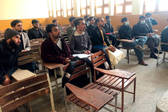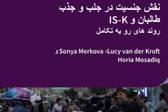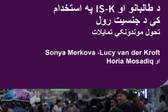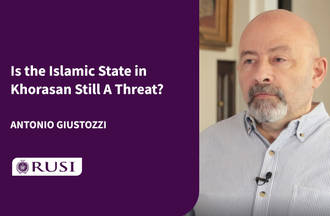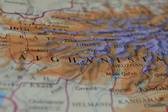Strengthening Resilience to Violent Extremism (STRIVE) Afghanistan
This EU-funded programme (2019–2024) focused on reducing the vulnerability of at-risk populations in Afghanistan to recruitment into violent extremist groups.
Overview
Strengthening Resilience to Violent Extremism (STRIVE) Afghanistan was a €3 million EU-funded Preventing and Countering Violent Extremism (P/CVE) programme that was launched in January 2019. STRIVE Afghanistan was a pilot programme conducted under the EU’s global STRIVE platform. It built on the successes of previous RUSI-implemented STRIVE programmes, notably STRIVE Kenya, STRIVE Horn of Africa, and the findings of the Norwegian government-funded Prevention Project.
Crisis and regime change in Afghanistan in August 2021 forced the programme to adapt. The redesigned programme was delivered without any involvement from the post-2021 authorities, and many of the activities were carried out remotely.
The final programme delivered an individual-level intervention aimed at populations deemed at risk to Islamic State online recruitment efforts, a national-level intervention involving the training and mentorship of Afghan journalists in peace journalism, and technical engagement with key EU officials and diplomats on cross-cutting issues such as human rights and violence prevention.
The programme produced a significant number of research papers and articles on topics ranging from peace journalism and gender to Taliban governance and strategy – often based on unique sources – which provide a valuable insight into this under-studied and turbulent transitional period in Afghanistan.
Aims and objectives
The overarching aim of the programme was to reduce the vulnerability of at-risk populations to Islamic State Khorasan Province (ISKP) propaganda, improve the conflict-sensitivity of Afghan media reporting and increase the skills and knowledge of EU officials and diplomats to facilitate their effective engagement with the de facto authorities on cross-cutting issues including human rights and violence prevention.
Funding
STRIVE Afghanistan was funded with the financial support of the European Union. Its outputs are the sole responsibility of RUSI and do not necessarily reflect the views of the European Union.
Project team
Dr Antonio Giustozzi
Senior Research Fellow
Terrorism and Conflict
Chris Goodenough
Programme Manager
Terrorism and Conflict
Emily Winterbotham
RUSI Senior Associate Fellow, Terrorism and Conflict
Dr Gayatri Sahgal
RUSI Associate Fellow, Terrorism and Conflict
Dr Jessica White
Director of Terrorism and Conflict Studies
Terrorism and Conflict
Martine Zeuthen
RUSI Associate Fellow, Terrorism and Conflict
Matt Freear
RUSI Associate Fellow, Terrorism and Conflict
Dr Simon Copeland
RUSI Associate Fellow, Terrorism and Conflict
Professor Sultan Barakat
RUSI Senior Associate Fellow, Terrorism and Conflict
Project team roles
- Dr Antonio Giustozzi, Programme Director
- Christopher Goodenough, Programme Manager
- Emily Winterbotham, Programme Executive
- Dr Gayatri Sahgal, Monitoring, Evaluation and Learning Lead
- Dr Jessica White, Gender Advisor
- Martine Zeuthen, Strategic Advisor and Gender Advisor
- Matt Freear, Strategic Advisor – Preventive Media
- Dr Simon Copeland, Strategic Advisor – Engagement with At-Risk Populations
- Professor Sultan Barakat, Senior Associate Fellow
In addition, the project drew on the expertise of several partner organisations.
- The Centre for Information Resilience is an independent, non-profit social enterprise dedicated to exposing human rights abuses and war crimes and combatting online harms.
- The Centrum Media is an independent digital news network providing nuanced context by bringing human voices to the front, and generating lasting social impact by empowering audiences to make informed choices.
- The Conflict Analysis Network is a research organisation focused on conflict, violent extremism, gender and human rights.
- Coventry University’s Centre for Trust, Peace and Social Relations is a multidisciplinary centre that deployed researchers to conduct the programme’s independent evaluation.
- GIST is a research consultancy that supported the STRIVE Afghanistan programme through bespoke formative research and the design and implementation of the learning strategy.
- Samuel Hall is a social enterprise that conducts research, evaluates programmes and designs policies. Samuel Hall designed and delivered the programme monitoring strategy.
Project impact
Monitoring, Evaluation and Learning
The programme included a large-scale and robust Monitoring, Evaluation and Learning (MEL) component. The independent evaluation report objectively reviews the impact of the programme.
Engagement with At-Risk Populations
A comprehensive ‘discovery phase’ of formative research identified at-risk population profiles and ISKP online recruitment channels. A total of 400 pieces of campaign and media literacy content were created, tested and disseminated through targeted channels to the identified at-risk population, attracting a high level of diverse engagement and promoting critical thinking and media literacy skills. Campaign reach was considerable; content was delivered to an audience of 1.7 Facebook users, or almost 40% of Afghanistan’s Facebook userbase.
Preventive Media
After an exhaustive shortlisting process, 30 Afghan journalists based in Afghanistan and Pakistan received a six-day in-person training, followed by a mentorship phase where they produced and published 84 conflict-sensitive stories. Trained journalists demonstrated a significantly improved ability to engage in conflict-sensitive reporting.
Engagement with EU Officials
Three discussion and dissemination events were held with influential stakeholders (non-EU and EU officials), in addition to several high-level closed-door briefings. EU officials noted an improvement in their skills and knowledge, which could facilitate more effective engagement with the de facto authorities in Afghanistan on cross-cutting issues such as human rights and violence prevention.
Research
A large number of research papers and articles were published. These can be found below under the programme strand subheadings.
Outputs
Access the outputs of the project grouped by theme.
Engagement with At-Risk Populations
Initially this activity strand included a mentorship programme focused on university students who had been assessed to be particularly vulnerable to the recruitment efforts of violent extremist organisations. However, the Taliban takeover in August 2021 prompted a shift to online recruitment disruption and redirection. This strand featured two types of activity on social media, which were conducted in parallel: boosting resilience to media propaganda and providing alternative content to violent extremist propaganda. Despite the difficult operating environment, efforts were made to incorporate gender-sensitive programming.

This paper examines how ISKP has attempted to fill this gap by identifying and engaging prospective recruits from Afghan universities through social media. (Simon Copeland, 27 October 2023, CREST Research)
Preventive Media
Journalists can play an important role in responding to violent extremism. Reporting on the historical, structural and personal factors linked to recruitment into violent extremist organisations can help societies better understand conflicts and their drivers, which can ultimately contribute to the development of peaceful solutions to many social and political forms of conflict. Based on this understanding, RUSI commissioned a Peace Journalism training and mentorship programme for Afghan journalists.

This article presents and discusses data from two research methods on journalism in Afghanistan before the Taliban takeover of power in August 2021. (Jake Lynch and Matt Freear, Frontiers, 15 February 2023)

This article presents and discusses results from an exercise in comparative content analysis of news articles about issues of conflict produced by Afghan journalists before and after participating in an internationally sponsored training and mentorship programme in Peace Journalism. (Jake Alexander Lynch and Matt Freear | 18 March 2024)
Gender Research and Mainstreaming
STRIVE Afghanistan recognised the importance of gender sensitivity and responsiveness and worked closely with the programme Gender Advisor to mainstream gender across all programme activities and interventions, including through commissioning standalone gender research.
P/CVE and Counterterrorism in Afghanistan Before and After August 2021
Recent global developments have seen an increasing interest in non-Western responses to terrorism. STRIVE Afghanistan tried to engage with the government of the Islamic Republic of Afghanistan in its final years, but without success. The Afghan Republic continued to be unable or unwilling to substantively engage with or implement its countrywide P/CVE National Action Plan, although this was not surprising in the context of an increasingly successful Taliban insurgency.
After August 2021, the STRIVE Afghanistan team also invested considerable energy in developing an understanding of the Taliban’s approach to counterterrorism and counterinsurgency. After retaking power in August 2021, the Taliban’s initial approach to dealing with insurgencies appeared to rest upon repression. However, on closer investigation, our research has uncovered a more complex reality containing elements potentially analogous to P/CVE approaches, such as reconciliation and reintegration.
Video Explainers
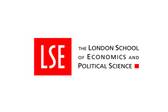
This article discusses how, as the Taliban develops its state and governance apparatus in Afghanistan, it is also confronted with the unexpected task of developing a counter-terrorism strategy. (Antonio Giustozzi, LSE Blogs, 12 June 2023)

The paper discusses the conditions of the Islamic State in Khorasan and how its strategy and structures evolved after the Taliban takeover in Afghanistan in August 2021. (Antonio Giustozzi, LSE Blogs, 6 February 2024)
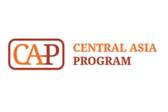
The main objective of this report is to achieve a greater understanding of current local governance dynamics in post-August 2021 Afghanistan under Taliban rule. More specifically, it aims to uncover how local government dynamics have changed in the eastern region since the Taliban took over in August 2021.
Practitioner summaries
Access the Practitioner Summaries produced as outputs for this project.
Related projects
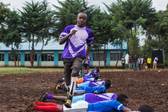
This RUSI-implemented pilot programme (2014-2017) was the first dedicated effort by the European Union to implement a countering violent extremism project outside its borders.
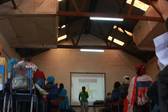
Following on from STRIVE Horn of Africa, this project was the second delivered by RUSI as part of the EU’s global STRIVE platform.













